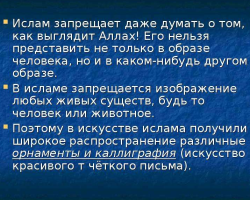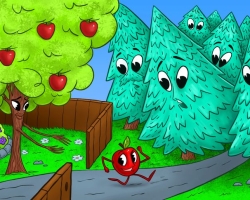From this article you will learn what the phraseology "Homeric laughter" means.
Content
- Who is Homer?
- Homeric laughter in the Iliad Homer: who do the gods laugh at?
- Homeric laughter: the history of the origin of phraseological units
- What does the phraseology "Homeric laughter", "Homeric laughter" mean?
- Direct and figurative meaning of phraseology "Homeric laughter"
- Phraseologism "Homeric laughter": Synonyms
- Examples of the use of phraseology "Homeric laughter": quotes of Russian classics
- Aphorisms to phraseologism "Homeric laughter"
- Video: Homeric laughter ...
- Video: phraseological units
Phraseologisms in our use are constantly found. With their help, we convey the essence of some event or conversation. Children study phraseological units at school, and learn to use them in their speech.
Read on our website another article on the topic: “White Crow”: origin, direct and figurative meaning of phraseology, explanation in one word, examples of sentences ”.
What does phraseology mean "Homeric laughter"? What are his synonyms? Answers to these and other questions, you will find in the article below. You will also see many examples of use and aphorisms. This will help to better understand the material. Read further.
Who is Homer?

At the mention of the name Homer Many people have a funny bald fat man from the animated series "Simpsons", which loves donuts and beer. In fact, the first and only famous Homer - ancient poet, creator of the Iliad and Odyssey. He was the performer of epic poems in Ancient Greece.
There is an assumption of historians that during the time Homer Writing still did not exist, so his poems were transmitted orally. And only in VI century BC. e. Athenian tyrant Pisistrata ordered to write poems Homer In the form of text.
Despite the fact that this poet created in the era of antiquity, his works have coherence and logic, they have a geometric style and worked out characters. Often Homer They reckon to the AEDAM and RAPSODS - poets who performed their works orally and lies, to the accompaniment of a musical instrument. As a rule, the sources of themes proceeded from the mythology of the ancient Greeks.
Homeric laughter in the Iliad Homer: who do the gods laugh at?
Concept "Homeric laughter" Today it means unbridled and somewhat sinister, dramatic laughter. In the work "Iliad" So thunderous gods laugh at feasts. As a rule, the dimensions are called loud, confident and rolling laughter homeric. In creation Homer The gods make fun of the Kuznets God, the lame Hephaestus. Also, the object of their ridicule is the patron of fire - he pours guests with nectar, a drink of celestials:
- The laughter of the unspeakable was erected by the blessed inhabitants of the sky, seeing how the Hephaestus Cup is fussing around the Hephaestus."Iliad" translated by N.I. Gnedich.
- Blessed gods raised the laughter, watching the house with the Hephaest Cup, panting, rushing about. "Iliad" in the translation by V.V. Veresaeva.
Unlike many other children of Zeus, Hephaestus was born painful. He possessed innate chromium, was frail and ugly. Of course, Hephaestus was dropped from Olympus. He fell into the sea. As a result, he was brought up by Fetida and Evrinom, two marine goddesses.
Despite the fact that outwardly Hephaestus grew up unattractive, he had strong hands, and he became a skilled blacksmith. But the children's resentment continued to live in the hero. He poured a gold chair as a gift from his mother. As soon as Hera sat in him, she was entrusted with the wagons, from which no one could free the goddess. To get rid of the curse, the goddess had to go to his son and ask him for forgiveness for treating him unfairly.
However, Hephaestus did not really want to forgive the ger. Only the god of wine Dionysus saved the situation. The man was embarrassed and forgave his mother. He stayed on Olympus. It is quite logical to assume that the gods laugh, seeing how intoxication takes possession of Hephaestus, and he forgets about his principles.
Homeric laughter: the history of the origin of phraseological units

This phraseologism originates from the Homerian "Iliads". He is associated with a thunderous laughter of the gods Olympus. However, in our time, any loud, expressive and dramatic laughter is called homeric laughter. Further, phraseology was “picked up” by many writers, as a very appropriate emotional display of someone’s laughter and a successful, concise description of the situation:
- A homeric laughter rose, among which Ivan Sergeyevich’s voice was heard: “What! I even forgot that he is married. ”A. A. Fet. "My memories".
- This sudden turn caused a homeric laughter near Turgenev.P.V. Annenkov. "Literary memories."
- The young summer resident blushed and ran across the road, dropping blue eggplants, which caused a homeric laughter among the womanizers.Evgeny Petrov, Ilya Ilf. "Golden calf".
Phraseologism is used today, to a greater or lesser extent. This expression gives creation to the shade of theatricality. Only the one who sincerely rejoices at someone’s failure or imperfection, who experiences antipathy for the ridicuable, can laugh with a homeric laughter. In other words, this is far from a well -wisher and not the one who makes fun of malicious.
What does the phraseology "Homeric laughter", "Homeric laughter" mean?
A very loud laughter is called such a phrase, which no one thinks to restrain for decency or other reasons. You can even say that the owners of homeric laughter do not respect who they laugh at and do not hide it. What else does phraseology mean "Homeric laughter", "Homeric laughter"?
As a rule, homeric laughter is a collective concept, but they can laugh alone alone if a person has confidence and a loud voice. For example:
- Despite the fact that his futile attempts caused homeric laughter, he continued.
- Most of all, she was afraid of homeric laughter during her first performance - but, contrary to fears, the audience accepted her quite well.
- The mother-in-law’s homeric laughter once again convinced Paul that he again did something wrong.
- Your homeric laughter, in this case, is inappropriate.
- Who are you laughing at? You laugh at yourself! And the “homerification” of your laughter, in this case, makes you even more ridiculous.
Homeric can not be called timid and secretly laugh or laughter, escaped gradually. This is a strong and undisguised emotion, often hyperbolized. A real person or a fictional character, flooding with a homeric laughter, subconsciously wants everyone to see and hear it.
Concept "Homeric" Indicates the scale of fun, its global. Therefore, the main one the function of phraseology is amplification.
Direct and figurative meaning of phraseology "Homeric laughter"
In the literal sense of phraseologism homeric laughter - This is a comprehensive laughter of the gods from ancient creation. In a figurative sense, a homeric one can be called any laughter of a group of people or one person over someone. But only if this laughter has drama and some kind of mockery, if it is uncontrollable and fills everything around.
- The singing of Vovka at a school concert caused a homeric laughter: it seems that he not just “missed” past notes, but intentionally “spent” them the whole song. As the leader of the circle, Viktor Ivanovich, later joked, many with bated breath expected that he would accidentally get into at least one note. But a miracle did not happen. Nevertheless, the young artist remained sacredly convinced that he had performed perfectly.
- At the last words, Pashka bashfully covered the hole on the jeans in the area of \u200b\u200bthe fifth point, and the whole company burst into a homeric laughter.
- Contrary to her expectations, there was no homeric laughter for recognition. Katya was even surprised at the fact that the former offenders reacted to her problem with understanding.
Often in literary works the concept "Homeric laughter" Enhances the emotions of the heroes. The author shows that one or several people do not respect so much and make fun of someone so actively that it is worth emphasizing and showing the reader a similar situation.
Phraseologism "Homeric laughter": Synonyms
As an alternative to this expression, you can use a fairly wide list of stable expressions. The main thing is to reliably convey the entire comic of the situation. Here are synonyms for phraseologism " Homeric laughter ":
- You will tear the tummies
- Laugh to fall
- Smell with laughter
- Stormy fun
- General ridicule
Home laughter, as a rule, laughs a group of adults. In relation to chuckles of children (even group), this expression is not used.
Examples of the use of phraseology "Homeric laughter": quotes of Russian classics
To better understand the material, you need to work on the preparation of sentences. Learn examples of using phraseology "Homeric laughter"and quotes of Russian classics, and then try to make proposals yourself.


Aphorisms to phraseologism "Homeric laughter"
Aphorism Laconically and generally speaks of complex things. This is not just banality, but artistically pointed thought. This is a smart or witty interpretation of expression or word. Here are aphorisms to phraseological units "Homeric laughter":

Video: Homeric laughter ...
Video: phraseological units
Read on the topic:







